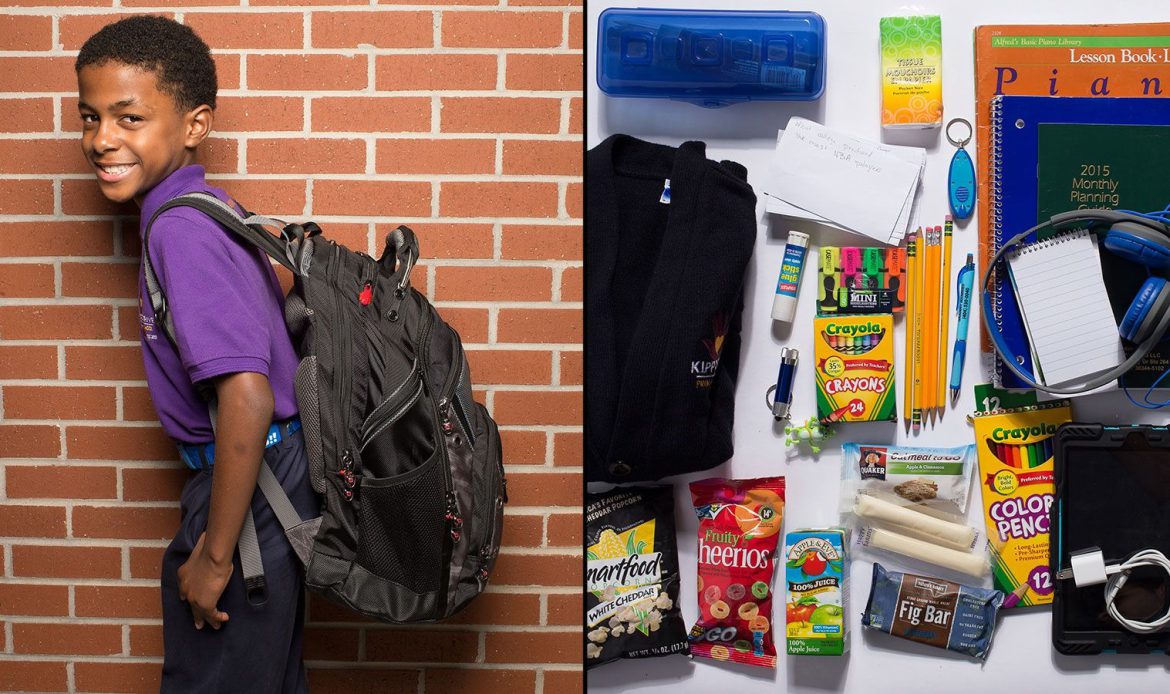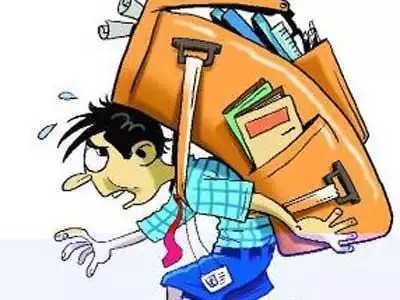This article was published in The Citizen Newspaper, Tanzania on 12th September, 2023
It is a common practice in Tanzania that children carry with them exercise books and textbooks to school every day. This is not exclusive to Tanzania though, it happens in different parts of the world as those are necessary tools for academic activities.
It would be completely different and possibly highly underachieving if children (students) did not write down anything or had no textbook references. This is to buttress the point that carrying learning materials is necessary, and there is a positive side to it.
Exercise books are crucial for taking down notes, writing assignments, and keeping a record of what the student has learned in the specified course of time. Writing down what has been learnt, according to experts, is paramount as it gives the learner an opportunity to engage with the content learned on a deeper level, and increases the possibility of storing it in long-term memory.
Textbooks are necessary as references that give more detailed explanations and exercises that enhance and broaden the student’s understanding.
However, there have been complaints from parents that the journeys to and from school are strenuous for many children because of the heavy bags. Children do not only need books, but they also carry with them a few other things as the weather or the duration of their stay at school demands. These could be food, water, a change of clothes, etc.
All these put together make the child to carry a bag that sometimes weighs more than what is allowed as cabin hand-carry (7 Kilos) in planes every school day. Some humour here.

Doctors and paediatric physical therapists recommend that children should not be made to carry heavy weights exceeding 15 per cent of their body weight. The average weight for a 12-year-old child (both boys and girls) is about 40 kilos. 15 per cent of 40 kilos is 6 kilos.
We do not argue here that children should carry nothing to school. We are rather advocating for considerate recommendations for the well-being of children at the moment and in the future. These children have a life ahead of them to live.
Just for awareness, the healthy limit for backpacking even for adults (weighing 60 to 80) is 12 kilos. This is recommended by experts for spinal health, balanced posture, and to prevent back-related problems. It is hard to think that children whose bones are not yet fully formed, and whose muscles haven’t matured properly are loaded with such heavy luggage.
During my time in primary school, we had 5 main subjects. But at the moment they range between 7 and 9. For all these most children carry exercise books and textbooks every blessed day. This is because in most schools there are no exclusively fixed class schedules. Classes can be changed unpredictably as the need arises.
According to a teacher in Dar es Salaam, Grace Mrikaria, the minimum number of subjects per day is on average between 4 to 5, allocated 40 minutes per period. Aside from classes, there can also be sports activities, games, cleaning, etc. All these are enough to make children tired.
Ms. Mrikaria discloses that it is particularly a challenge for children who reside far from school, especially those going on foot.
They always look tired, distressed, hungry and worn out, and cannot even walk properly and upright.
It is not studies that make them that tired, it is rather the journey to and from school with heavy bags on them, and often exposed to the scorching sun.
Congruent to the norm, many schools, especially private schools, have come up with firm policies and guidelines regarding the materials that children can use in class, especially exercise books. Many schools require parents to provide bigger exercise books, the ‘counter books’ for note taking for the whole year, for each subject.
While the goal of this is positive, to help children have their notes in one notebook, it makes life difficult for children as they have to carry these heavy books with them at least 5 school days a week, at least 20 days a month, excluding weekends, and at least 200 days a year, leaving out two months of holidays.
The policies have not stopped at specifying the nature of notebooks that are accepted, it also specifies the size of the counter book that is appropriate. Quire 1 is not accepted, Quire 2 is accepted by some schools, and Quires 3 and 4 are highly encouraged.
A Quire 4 counter-book weighs about 700g, Quire 3 weighs about 500g, Quire 2 weighs about 300g, and Quire 1 weighs about 200g. These can increase, or slightly decrease based on the weight of the cover and that of inner pages.
The goal, which is in this case notetaking, is definitely being achieved, but that is not the end goal of our education. We can compromise some things for the health and well-being of children, the future generation.

We can see the danger if a child carries six of those Quire 3 or 4 counter books every day, together with a number of textbooks, an assignments book, a file, a sweater, and other things in the backpack to and from school.
Adding a 1-litre bottle of water adds 1 kilo to the backpack. A primary school teacher in Dar es Salaam shared that many students carry heavy bags, weighing more than 7 kilos.
What do children say?
A student who requested to be anonymous, attending a government school in Mbeya said they are worried about not having everything at school because they will be punished when they don’t have the necessary materials at the time when they are needed. As such they have to take with them all the books. They also have to buy or bring from home their food and water. This is a challenge here.
Through her parent, we had a conversation with Divina Providencia Milagrossa who goes to a Primary School in Dar es Salaam. She discloses that students of her level (Standard II) carry about 3 or 4 textbooks, and all 6 exercise books to school. They do not enjoy carrying heavy school bags. Having transferred schools, she recalls a better system at Libermann Primary School where she previously studied.
According to the Head Teacher of Libermann Primary School in Dar es Salaam, Ms Loyce Gahutu, students leave all the books they don’t need for home revision at school, they have special homework books provided which are kept at home.
At most, they come to school with only a homework book and a diary in which the teacher specifies the homework requirements matching with the books at home. They can bring a bottle of water, but not food. This makes easy their journey to and from school, it also makes children learn smoothly. Other schools can learn from the practice of Libermann Primary School.
What do experts say?
Consulting Dr. Tibera Rugambwa from the Central South University in Changsha – Hunan, China she expounds that many different lifestyles such as sitting for long times, carrying heavy weights, and carrying heavy loads, especially repeatedly can have serious impacts on the human spine over time, regardless of whether they are children or adults. Carrying heavy bags influences also posture and how the person walks.
There are not many paediatric cases diagnosed as caused by carrying heavy bags as of now. The effect will be felt a few years from now as this is a modern thing, and the children stay in the system for many consecutive years.
While we need local studies to examine the implications of this on children and offer expert advice to the education management bodies, we also need to employ common rational judgement regarding the physical abilities of children in view of allowing them a smooth and less stressed life.
Children, especially those in primary schools, are to be handled with care as oftentimes they may not be able to express themselves properly regarding the nature of discomfort they feel in their bodies. This poses a risk of such problems not being addressed at the right time.
In cities, most students, including primary school students, use public transport, ‘dala dala,’ in which they often stand from point A to point B. They are always expected to vacate the seats for adults. This goes a long way toward making their discomfort a normalcy and more or less like a lifestyle for their age.
Private schools should be advised to consider the implications of their requirements in the well-being of their clients, the children, both at the moment and in the future for which they are being prepared.
Where possible, new ways of wavering such risks, and easing burden and discomfort can be considered, especially now that technology avails us with a lot of possibilities for improving the quality of our lives as well as our systems of learning.
